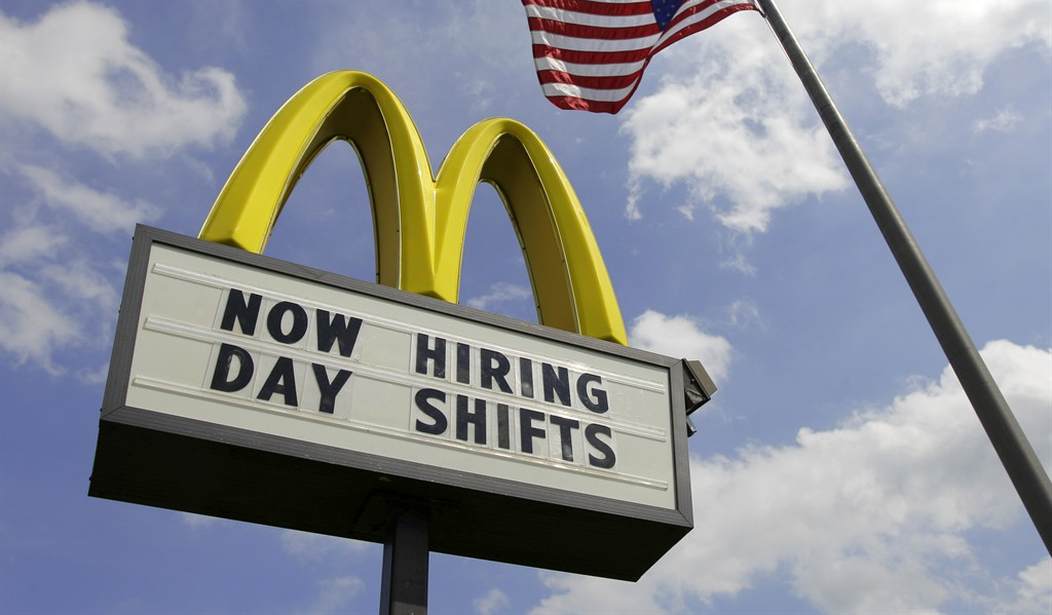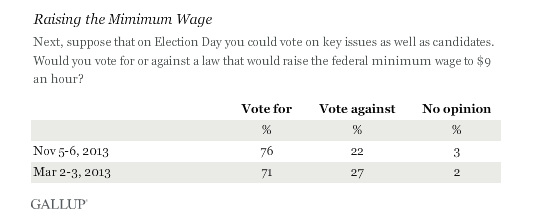“Countries with minimum wage laws almost invariably have higher rates of unemployment than countries without minimum wage laws,” Thomas Sowell recently wrote. And yet:
Progressives are deeply committed to passing legislation that will give workers a “living wage.” And most of the country, too, is apparently onboard -- including the president himself. Indeed, during his State of the Union Address this year, President Obama asserted, “Tonight, let’s declare that in the wealthiest nation on Earth, no one who works full-time should have to live in poverty, and raise the federal minimum wage to $9.00 an hour.” There are few proposals in Congress, in other words, that earn overwhelming bipartisan support. This is one of them.
But that does not necessarily mean this a good idea. If we continue to follow Dr. Sowell’s reasoning, we come to one inescapable conclusion: minimum wage laws raise unemployment, and disproportionately hurt young people.
This is “compassion,” he asks rhetorically?
There is nothing mysterious about the fact that most people start off in entry level jobs that pay much less than they will earn after they get some work experience. But, when minimum wage levels are set without regard to their initial productivity, young people are disproportionately unemployed -- priced out of jobs.
In European welfare states where minimum wages, and mandated job benefits to be paid for by employers, are more generous than in the United States, unemployment rates for younger workers are often 20 percent or higher, even when there is no recession.
Unemployed young people lose not only the pay they could have earned but, at least equally important, the work experience that would enable them to earn higher rates of pay later on.
Recommended
The whole idea behind the minimum-wage-laws-help-everyone fallacy is that it presumes Americans, especially young people, will never climb the socio-economic ladder after earning valuable skills in the workforce. In this mindset, economic advancement is merely a figment of our collective imaginations. Not true, Sowell writes:
Most people in the lower income brackets are not an enduring class. Most working people in the bottom 20 percent in income at a given time do not stay there over time. More of them end up in the top 20 percent than remain behind in the bottom 20 percent.
A $9 hourly wage for every low-skill worker is a nice idea that sounds good on the surface. But when we dig a little deeper, first and foremost by looking at empirical evidence, the negative costs of minimum wage laws seem to far outweigh the benefits.


























Join the conversation as a VIP Member